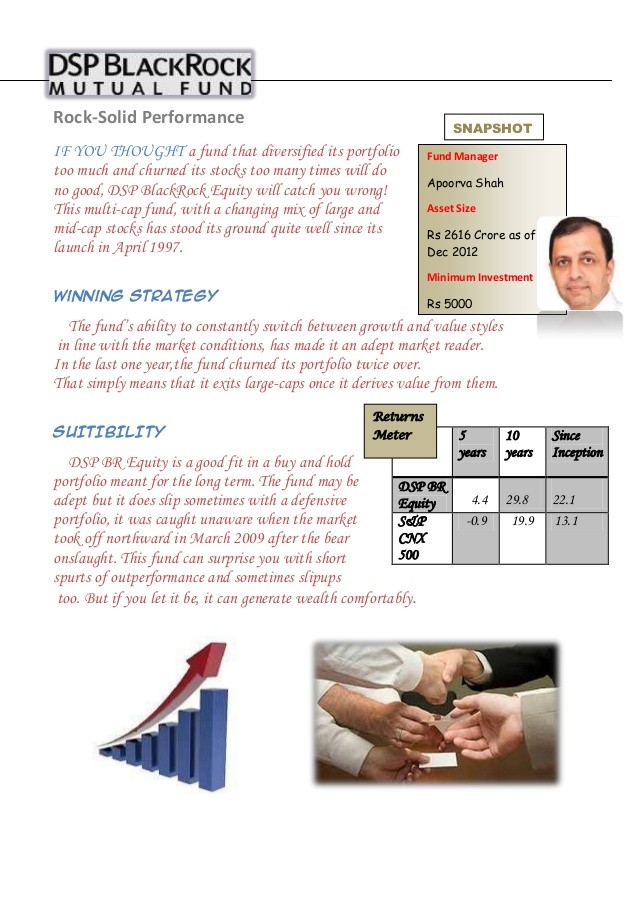It s Possible To Have Too Many Mutual Funds
Post on: 11 Октябрь, 2015 No Comment

HUMBERTO CRUZ ASK HUMBERTO
March 21, 2005 | HUMBERTO CRUZ ASK HUMBERTO
Q: On the recommendation of my financial planner, I am invested in 18 mutual funds. All are no-load except for two.
Whenever I want to invest additional money, the planner recommends I buy new mutual funds rather than buy more shares of the ones I already have. What is the recommended number of funds to be able to properly manage them?
A: I suspect you have many more funds than you need, even without continually adding new ones.
The purpose of investing in more than one mutual fund is not to show off a collection, but to build a diversified portfolio that includes different asset classes, such as stocks, bonds and cash. For further diversification, you could pick funds that invest in different sub-asset classes, such as large-cap and small-cap, value and growth, and domestic and international stocks, and bonds of different maturities and credit quality, as well as bonds from other countries. But you can do that with far fewer than 18 funds. In fact, you can do it with one.
Obviously, you want to have adequate diversification, said Christine Benz, associate director of fund analysis for the widely followed fund research firm Morningstar in Chicago. But 18 funds to me sounds like too many when you consider you could accomplish your goal with a single fund, she said, referring to so-called life cycle or target retirement funds that split their portfolio across many asset classes. These funds, offered by the major mutual fund companies, typically invest in other funds run by the same company.
If you want to put together your own fund portfolio rather than rely on the mix selected by these funds of funds or other balanced funds, I believe you would need at least a domestic stock fund, an international stock fund, a bond fund and, for short-term cash needs, a money market fund.
Financial advisers generally suggest anywhere from four to 10 funds, depending on how much diversification you want and how much money you have, although there is no magic answer.
If I were to mention a number, I would be pulling a number out of a hat, Benz said. Ten funds seems to me like a reasonable number.
Once you get beyond 10, it becomes more difficult to monitor your portfolio and check whether the fund managers are adhering to the investment style and philosophy you want.
You may be incurring unnecessary costs when one fund manager buys the same securities another fund manager is selling (a likely occurrence when you own 18 funds).

And with so many funds, your overall portfolio may end up looking like a broad index fund (one that tracks the performance of a broad market benchmark) but without the advantage of the low costs typically associated with index funds. For novice investors wanting to know more on the basics of building a diversified fund portfolio, I recommend The Fearless Investing Series: Mutual Funds Workbooks (John Wiley & Sons, 2005), a series of three workbooks edited by Benz with input from Morningstar’s staff.
Now for a related question:
Q: Over the years I have gravitated to mutual funds from one company I trust more than any other. I am extremely satisfied with the company’s philosophy, service and products. Now that almost 90 percent of my money is with them, it hits me that maybe I shouldn’t have all my eggs in one basket. Any thoughts?
A: If your concern is what would happen to your money if your fund company goes under, you can rest easier. Mutual funds are required by law to place all their portfolio securities (that is, the stocks, bonds and other investments held by the fund) with a custodian, usually a bank. The bank in turn must keep these securities separate from other bank assets. Even if the fund company goes bankrupt, creditors could not seize those securities.
Therefore, the decision whether to have all your mutual funds with the same company, aside from convenience, basically boils down to whether you can get the diversification you need in one place (either a single fund family or a fund supermarket that allows you to invest in funds from different companies).
You have to be sure the firm offers good choices in all the major asset classes, including international funds and a money market fund, Benz said, and that the funds offered do not all tend to invest in the same securities (as many Janus stock funds did at the height of the technology bubble in 2000).
Humberto Cruz can be reached at AskHumberto@aol.com or c/o Tribune Media Services, 2225 Kenmore Ave. Buffalo, NY 14207. Personal replies are not possible. Look for other columns by Humberto Cruz in Wednesday’s Business section and in Sunday’s Health and Family section.














